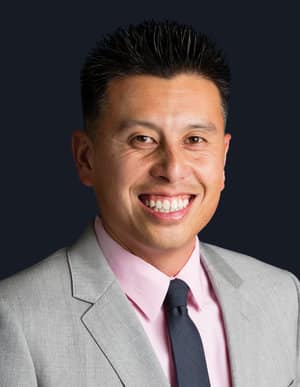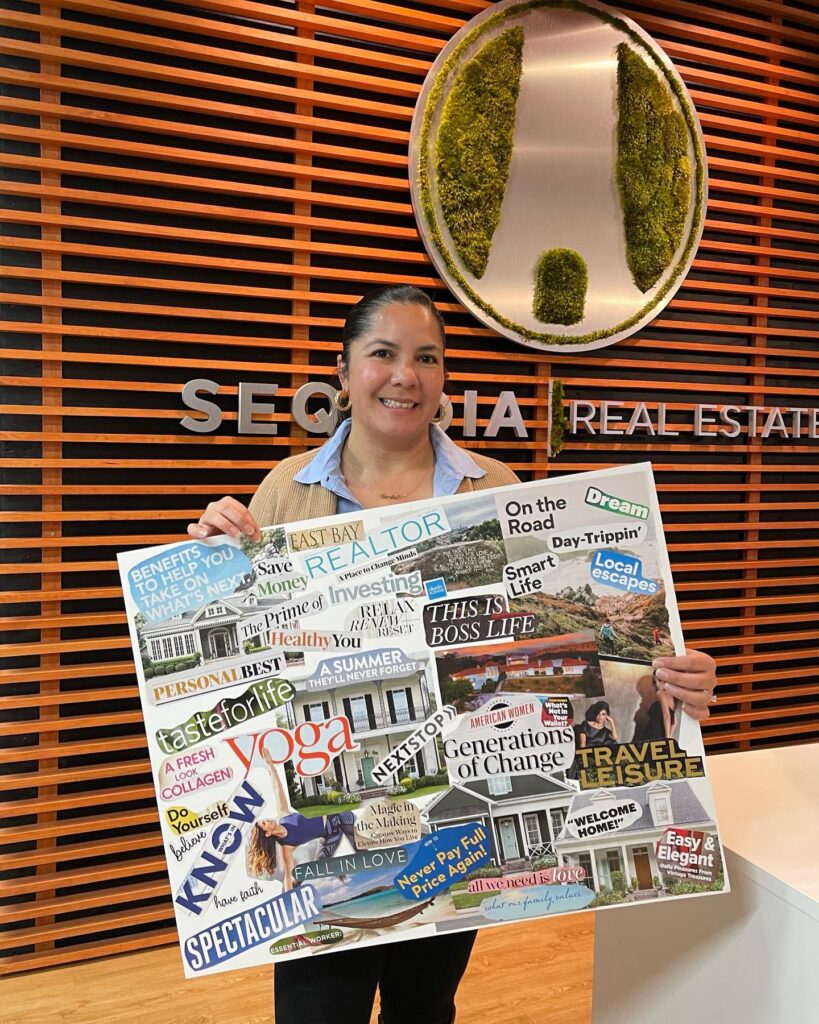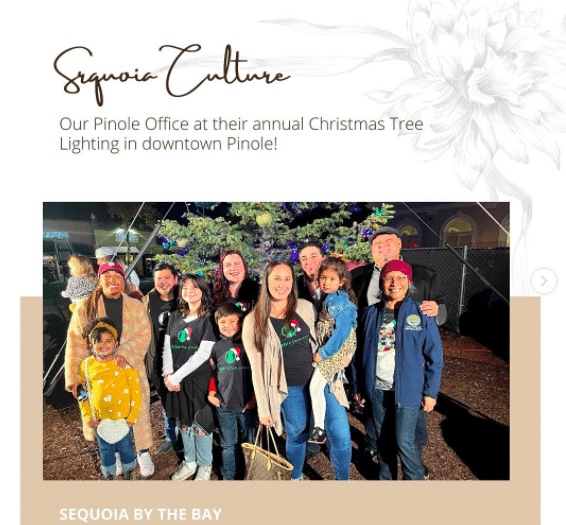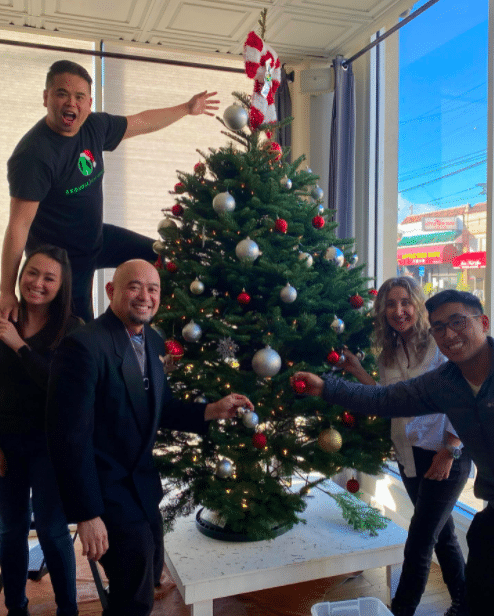
Kelvin Kam of Sequoia Real Estate is breaking the mold of the standard brokerage. He’s created a culture of support for his agents, and has spearheaded a documentary and docuseries about his company’s unique business approach. He sat down with us to explain how he’s shaking up the industry and why he turned his back on the traditional brokerage model.
Hi, Kelvin! Thanks so much for joining me today. Can you tell me a little bit about your background and how you got into real estate?
Sure. I was born and raised in San Francisco, and I was a bio major at Berkeley. But I knew halfway through college that I didn’t want to do that as a living. So once I graduated, I went into tech because that was the cool thing to do back then, during the tech boom. But as I was doing that, I realized that even though my job was really flexible and I could play golf five days a week, I wanted more – especially once I got married. I just wanted something that would allow for more growth. So when I came to that realization, I was at home one day telecommuting and there was an infomercial for a seminar on investing. So I went to the seminar the next day and I learned a lot. That following week, I flew down to Arizona and started buying properties. This was back in 2003. I literally purchased over 50 properties that year, in Arizona, Dallas, and Austin. I assessed the risk and once I did that, my mind felt that it wasn’t very risky anymore because I had a plan in place. I just went all in. I didn’t want to waste any time.
I quit my job within a year, which allowed me to focus completely on real estate. I kept investing, branching out to other places like Idaho, Albuquerque, and Las Vegas.
I lost some properties when the crash happened in 2007. But I looked around where I lived, in San Francisco, and I thought the market was still pretty strong; even though prices had dropped, there was still so much demand there. So I decided it was a good time for me to get my real estate license and broker license. I started my own brokerage within a couple years.
“I wanted to create a company that was centered on agents, their growth, and an environment where they didn’t feel like they were a number.”
I decided to start my own brokerage because when I looked around, I saw there was something missing. Maybe all company founders think this way. But, you know, real estate is a pretty old-school type of industry. What I thought was needed wasn’t there. And what I’m talking about is a company that’s more centered around agents, growth, and an environment where they feel like they can share and not just be on their own. And on top of that, a place where they don’t feel like a number.

A lot of stuff I say can sound cliche, but when companies grow fast it’s really hard to maintain a culture that feels like family. So that’s what I wanted to create. My company was founded based on the principles of support and culture. It’s not about being the biggest, it’s not about having the most agents, it’s not about tracking everyone’s sales and kicking them out if they aren’t the best. We don’t even have a leaderboard. Most sales environments do, but I think that’s an old-school thing to have. All it does is boost the egos of the top producers. It rarely helps the ones at the bottom. In a traditional brokerage, that’s what it’s all about. But I’m trying to go against that. I’m not trying to be the biggest and since I’m not trying to be the biggest, I can spend a little more time with my agents. So a traditional brokerage would go by the 80/20 rule. If they bring 10 agents on board, two will succeed. That’s a model that’s been in place for at least 100 years. It works for them. But with my strategy, maybe we can try for five out of 10 agents to succeed. It requires a lot more energy and time, but I’m super vested in the growth of everyone who comes on board.
Can you give me an example of the unique ways you help agents grow?
Just yesterday I spent half a day with one of our new associates that joined one of our offices. We went to the driving range – not to golf, but to shoot her agent intro video. When I say “agent video,” you usually think about an agent who is standing in front of a house, all dressed up, and introduces themselves. And then they walk through the house and share how they can help buyers and sellers, they share some of their history, etc. That’s a typical agent video. But we don’t want to do that. We don’t want to just make videos, we want to make engaging videos. And there’s no other brokerage out there that pays for agent videos, I guarantee that. So I wanted to carve out time for this agent, to give them the right onboarding experience and help them create a video that would pull their personality out of them. Those videos help them stand out against the competition.
That’s awesome. Do you sometimes still act as an agent yourself?
No, I don’t represent buyers or sellers anymore. When I get a deal, like a listing opportunity, I always team up with one of our associates. I don’t think a manager should focus on their own deals; they should focus on the agents. My focus is agent growth. I don’t want to be there competing with our agents. So I use my listings and deals as a way for agents to gain more exposure.
As a broker, how do you use HighNote?
I use it as a recruiting tool, when I’m communicating with potential agents that may want to join our company. My agents send out HighNotes to their clients, but my potential clients are agents outside the company. The tool allows me to share effectively, and gather my thoughts effectively. The only real alternative would be for me to send an email or create a slideshow or use old-fashioned paper, and all of those options are so cumbersome.
“HighNote is so simple, which is what makes it user-friendly and easy to adopt.”
I love the platform, it’s so simple. That’s what makes it user-friendly and easy to adopt. Anyone who spends five minutes with it can figure it out, which is great. We pay for our agents to have HighNote, so it’s free for them. We believe it’s a very powerful platform, and that’s why we purchased it on a company level. When our agents use it, the clients that give them feedback always say that they’ve never seen it, which is cool because I know that means it’s a way to give us a competitive advantage. It really does give us that advantage, there’s no way around it.
What are some other tech tools that you believe are essential for agents?
Chime CRM is a favorite, we also use Slack. That’s another thing that has replaced emails for us. We use Disclosures.io, and we use Glide.
Sequoia hosts an annual event called Revolution Expo, which also focuses on tech. Tell me about that!
We started Revolution Expo three years ago, before COVID-19 hit. It’s a conference where we identify some of the latest technology that may disrupt our market. When we hosted it three years ago, our first subject was blockchain and real estate. Sometimes when we say “blockchain,” we think of crypto, but when we hosted this conference, my focus wasn’t on crypto. My focus was the tech behind it. And if you look up blockchain, you’ll see Fortune 500 companies all doing their own work behind the scenes to adopt blockchain. It’s just another way to store data in a much more secure way. So at our event we identified real estate companies that were focusing on blockchain as a platform for their business, and one that I see that’s still pushing pretty hard is a company called Proppy. When I met them, they were focused on the idea of recording your property deed on blockchain – so instead of recording it at the courthouse or city hall, you would record a copy on blockchain because it’s an ultra secure way of securing data so that no one can change it. So that was one of the speakers, and they had a transaction manager platform that we tested out. They’re still around and still working on it.
“We believe HighNote is a very powerful platform, which is why we’ve purchased it at a company level.”
Also at that seminar, we had a speaker talk about being able to access the equity of your home without getting a loan, and being able to sell shares of your house on blockchain. I can’t fully grasp that just yet, but it sounded pretty cool to me!
Our second event was about AI in real estate, and that was really cool. It talked about virtual reality, the ability to put on an Oculus and tour homes that are thousands of miles away. Another AI platform that I thought was cool was FieldNotes.ai, and that’s a CRM. With their tool, you can talk to their platform “Sparky.” So I could schedule a follow-up call with you by saying “Hey Sparky, can you set up a call with Lynsey tomorrow at 3pm, and here are some details about Lynsey.” Everything I said would be transcribed into my Google calendar and my CRM. So I could text that or speak that to Sparky.
But with all of these things, as cool as they are, it’s a fact that real estate is a very slow moving industry and it takes a long time for these kinds of things to be adopted. The core of our business is also people. A lot of top producers aren’t even on social media right now, so they won’t be adopting these new tools anytime soon.
But going back to HighNote – it’s easily graspable and it complements what agents are doing now. That’s the difference. We’re creatures of habit. People are so comfortable with their routines. So if you throw something at them that’s totally off the wall, they might think it’s cool but they aren’t going to spend time learning and adopting it.
“HighNote is easily graspable and complements what agents are already doing.”
The tech platforms that work best are the ones that can help agents get a deal. With HighNote, you spend 5-10 minutes, you create a presentation, and you know it’s going to help you close that deal. You see dollar signs right away.
I’d like to talk about something you just said, about how a lot of top agents aren’t on social media. Many agents believe that you’ll be left behind without social media and the latest tech tools.
I think there’s two sides to the coin. If you look at top listing agents, I’d say that most of them are not active on social media because they’re actively getting deals. They get a listing and put a sign in front of the house. If they do it right they probably get another listing in the neighborhood. So yes, social media can help them, but a lot of times they use other means – talking to people at open houses, door knocking, meeting the neighbors. You can still use social media to compound the effect, I totally agree with that. But when I look at what’s going on, if you look at the market and you search top producers, most of them aren’t on social media. And maybe that’s because most of the top listing agents are a little older and they already have a great stream of business from their network. But if they did use social media, I’m sure they’d be even better.

I do have to say that I don’t think agents will be left behind without social media and the latest tech, because I believe there are different ways to grow a business. That’s what I focus on, because I think every agent has their skills and their challenges. Some people love picking up the phone cold calling, and they do great. Some people like to be in-person and network. And some people like to be on social media, that’s fine. But to grow a business you have to do it in a way that’s comfortable for you, because if I tell you to cold call and you don’t like it, then you’re just not going to do it. If someone tells someone that’s not familiar with social media to be super active on social media, they probably won’t do it. And that’s what I do. I have business planning meetings with each of our agents, and at that time we uncover what they’re comfortable with, what their interests are, and we make that into a lead generation opportunity.
What would your advice be to an agent who wants to become a broker?
When I look at all the licensees out there, I’d say that 90% of the agents who have broker licenses still work for other brokers. That’s just how it is. One of the reasons for this is that you make so much more money from one deal as an agent, than you do as a broker. Let’s say there’s an 80/20 split. The agent gets 80% of the commission from a sale, and the broker gets the rest. But then of course the broker has the expenses of running a company.
There’s a couple things you have to think about – some agents like being an agent because they’re only reliant on themselves. You make it because of you, you fail because of you. There’s no one else to blame. But when you’re a broker, you can only do so much. It’s more about coaching, mentorship, nurturing growth. When I started Sequoia in the beginning, I was gung-ho. I thought I could make any agent a top producer. Then I realized I couldn’t. Even if I want it for them, they have to want it themselves or they won’t get there.

It’s like basketball. Sometimes as a coach you want to actually shoot the ball for the players. But you can’t. You’re just on the sideline, and sometimes you’re frustrated. But that’s the way it is. It’s a totally different game. So you have to have that mentality to grow a brokerage.
The second thing is also understanding that the money isn’t there in the beginning; it’s not there until you grow. And that’s why so many old-fashioned brokerages are just focused on sheer numbers of agents. But I’m doing it because I’m trying to be that other option that doesn’t exist. I’m trying to be that independent firm in every market. There’s no one like that. Every independent firm is usually only in their local market. We’ve already gone to four markets and we’re going to keep pushing to be in other markets.
“With HighNote, you know it’s going to help you win the deal. You see dollar signs right away.”
Another reason an agent might think about getting a broker license is for more knowledge. For some, it makes them more confident when they talk to clients. And if that’s what a person needs, especially when they’re starting out, then they should get their broker licence. Each agent has to decide what gives them confidence, and if it’s having a broker license, then do it. But I also want to put it out there that they shouldn’t let that education replace marketing, or networking, or generating business. It should all go hand-in-hand.
Great. Now let’s talk about the next exciting step for Sequoia – a documentary!
During COVID-19, earlier this year, we premiered our Sequoia documentary. I think we’re the first brokerage to create a documentary. It was something that came about at a time when I needed to push myself. And once the idea came about in March, within two or three months we started doing it and my director put together a film. We premiered it in August, in association with the 11th anniversary of Sequoia. We rented out a few screens, and over 200 people came out. We had really good feedback and we’re now going through another round of edits. In two weeks we’re going to submit it to a film festival in hopes that it gets picked up – and if we do, it will go on tour with the film festival. And we’ll ultimately try for it to be on Netflix. The documentary is called “A Giant in the Making,” as in a giant sequoia. It’s a backstory, a little about me and what I did in the past when I was younger, and how it led to Sequoia and the meeting of my partners, and how it all came into play.
We’re also going to put out a docuseries in a month or two, and that one is called “A Road to a Billion.” I wanted to put our goal out there, to hit a billion dollars in annual sales. For a large company, that’s nothing. But for us, with 100 associates, that’s something to shoot for. So the docuseries is a bi-weekly episode where I will be sharing where we are and how we can get to $1 billion. And each episode will feature one of our associates. We’re going to spend half a day with them and share their goals, challenges, and lifestyles. It’s going to give them a lot of exposure. And they can chop up that video many times for marketing purposes. The #1 goal is to help our agents, but on top of that it’s sharing with the world about what’s possible. It’s about giving people hope that they can get into real estate, no matter what their background is. A lot of times we don’t think we have the tools or capabilities, but they’re there. So we want to give that hope to everyone out there, that real estate is a platform that everyone should consider, whether as a Realtor or an investor. Everyone should look into it. There are no boundaries, no ceiling, which is why I got into it.
What a great idea! I can’t wait to see the docuseries and the documentary. Thank you for sharing your unique approach to your brokerage, it’s been such a pleasure learning all about it!
Are you looking to buy or sell a home in San Francisco, Pinole, Oakland, or San Mateo? Be sure to contact the amazing agents at Sequoia! You can also follow Sequoia on Facebook, Instagram, and YouTube!
…And if you’re a real estate agent looking to take your business to the next level, click here to get started with HighNote!







